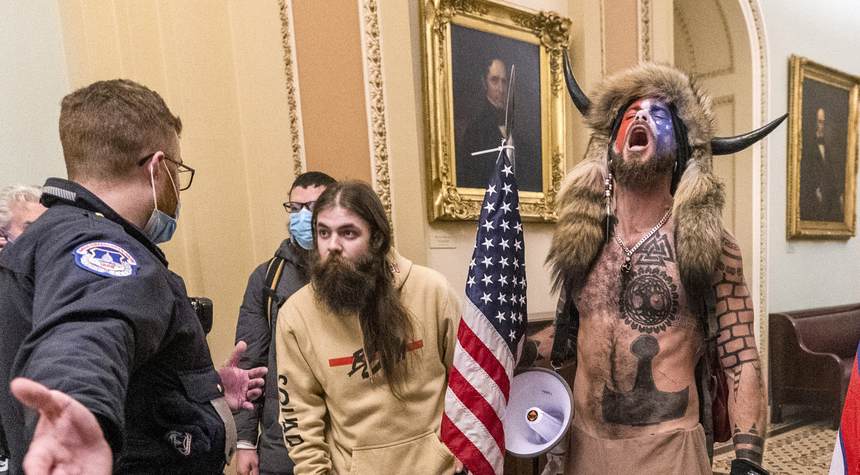Appeals Court Calls Into Question Hundreds of January 6 Prosecutions

There’s been an interesting development in the prosecution of the January 6 rioters. A three-judge appeals court has ruled 2-1 that the Justice Department can proceed with several hundred cases where defendants are charged with obstructing an official proceeding — for the time being.
What’s still to be decided is whether or not about 300 rioters acted with “corrupt intent” in invading the Capitol building during an official proceeding. And all three appeals court judges questioned whether the prosecution had interpreted “corrupt intent” on the part of the rioters correctly.
What seems esoteric in nature is actually crucial to the defense of hundreds of January 6 rioters. The “corrupt intent” standard does not apply to those rioters who are also charged with assaulting police. But for those defendants who are charged only with obstructing Congress, how that term is defined could mean liberty or 20 years in prison.
At the heart of the conflict is how to measure whether Jan. 6 rioters acted with “corrupt intent,” a central element in the crime of obstructing an official proceeding. The judges noted that the requirement of “corrupt intent” was meant to avoid inadvertently criminalizing traditional protest or lobbying activities that have been a feature of civic engagement throughout American history. Any decision on the meaning of corrupt intent would have to separate those legitimate activities from potential criminal conduct.
But Judge Florence Pan, who wrote the majority opinion, said it was the wrong time to decide that broad question because the three defendants whose cases were before the court were all also charged with assaulting police. There’s little question that those who assaulted police that day acted with “corrupt intent.” But in Jan. 6 obstruction cases that don’t involve assault, determining “corrupt intent” is much more complicated, she said.
“It is more prudent to delay addressing the meaning of ‘corrupt’ intent until that issue is properly presented to the court,” the Biden-appointed judge wrote.
Exclusively for our VIPs: Just How Many Feds Were Among the Jan. 6 ‘Insurrectionists’?
Not a PJ Media VIP yet? Click here to sign up!
The immediate effect of the ruling was a reversal of a decision by U.S. District Court Judge Carl Nichols, who determined that obstruction charges were being improperly applied to the January 6 defendants. The appeals court disagreed only because the corrupt intent standard had not been defined.
The stakes for the Justice Department and many January 6 defendants are enormous. In fact, the entire theory the DOJ has been using to prosecute all but a handful of defendants may be blown up by a different interpretation of corrupt intent.
Pan noted that prior cases have defined corrupt intent in multiple ways. The Supreme Court has previously described acting “corruptly” as doing something “wrongful, immoral, depraved, or evil.” The late Justice Antonin Scalia defined “corrupt” acts as those done “to bring about either an unlawful result or a lawful result by some unlawful method, with a hope or expectation of either financial gain or other benefit to oneself or a benefit of another person.”
A second judge, Justin Walker, a Trump appointee, agreed with Pan’s conclusion but adopted a narrower standard for corrupt intent.
“A defendant must intend to obtain a benefit that he knows is unlawful,” Walker concluded.
Defense attorneys for Jan. 6 defendants are already poring over Walker’s analysis. Nicholas Smith, who argued the case on behalf of three Jan. 6 defendants before the appeals court panel in December, said that if Walker’s contention is correct, his narrow definition of “corrupt intent” is already the binding opinion of the court.
This is a problem of the Justice Department’s own making. They wanted to use the obstruction charge as a sword hanging over the head of January 6 rioters to get them to plead down. Facing 20 years in prison, most of the January 6 defendants took their deal.
If hundreds of rioters are freed, DoJ and the Biden administration will be facing a nearly unprecedented backlash. As they say in politics, “very bad optics.”
No comments:
Post a Comment